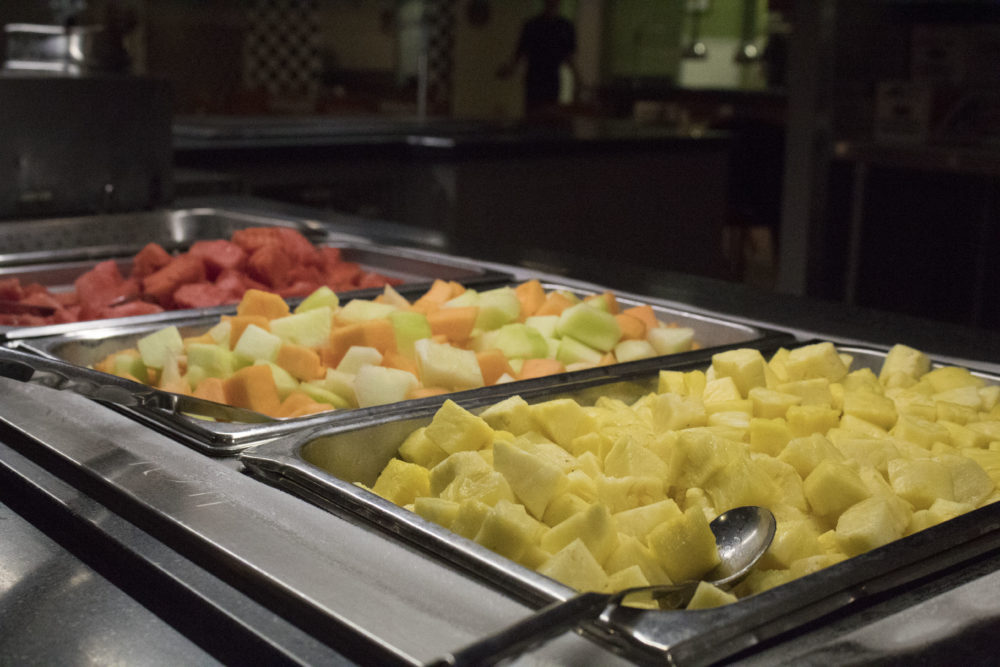Eating healthier on a budget
Utah State University’s Extension office has branded September as “Family Meals Month”.
Food $ense SNAP-Ed is a nation-wide education component to the Supplemental Nutrition Assistance program (SNAP), known as Food $ense, in Utah.
SNAP-Ed is funded by the United States Department of Agriculture and the Department of Workforce Services. The official target population of the program is those who are in intergenerational poverty.
“In a nutshell, this program was designed to teach low-income families and individuals how to eat healthy and be physically active, both on a budget and while they don’t have much time,” said LaCee Jimenez, the social marketing, advocacy and eligibility coordinator for Food $ense. “Our goal is to help lower income families and individuals avoid illness related to obesity, poor nutrition and lack of physical activity.”
 Miranda Lorenc
Miranda Lorenc Snap-Ed has mainly advertised via bus ads throughout the state and by reaching out to the head coaches of the University of Utah Utes and Utah State Aggies football teams, Coach Kyle Whittingham and Coach Matt Wells.
“The message we are hoping to get out there is that research has found that there is an association between family meal time and the health outcomes that it provides for youth and families,” Jimenez said. “Sometimes we are just going so fast through life that we lose that chance to connect and socialize. There are a lot of health benefits to cooking a homemade meal.”
 Miranda Lorenc
Miranda Lorenc Caleb Harrison, Hunger Solutions assistant director and Food $ense staff assistant, discovered dinner groups while he was attending school here at Utah State.
“A bunch of my friends and I created a dinner group where each friend would take a night to make dinner for the group during the week,” he said. “There were at least 20 of us, which meant that you only had to make dinner once every three weeks.”
Harrison and Jimenez said it doesn’t take much time for college students to learn how to eat healthier or change something simple in their daily routine to help them maintain a healthier lifestyle. Both shared their tips for simplifying a college routine when it comes to meal planning and eating healthier.
- Plan ahead. Take time to look through the ads for the grocery stores during the week and try to do your meal prep during the weekends, which tend to be less busy.
- Crockpot meals are a cinch to throw together, especially while studying.
- Check out the farmers and gardeners markets in Logan for fresh local produce.
- Take time to park further away or take the walk up Old Main Hill.
- Don’t take the shuttle all the time.
- Get outside and do something active with friends, whether that be playing Ultimate Frisbee or taking a walk in the fresh air.
- Take a break from studying to get out and move around.
“Good nutrition doesn’t have to take a lot of preparation,” Harrison said. “Find snacks that you can pack easily that don’t require additional preparation. The beauty of nutrition and eating whole involves eating things in their natural state. What you get for a meal has a huge impact on your week and your day.”
— kortni.marie.wells@aggiemail.usu.edu
@kortniwells

